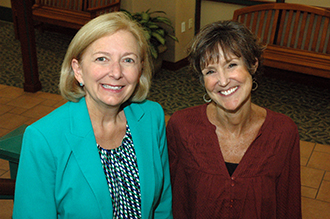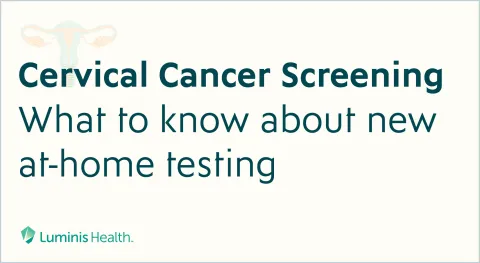Effective January 20, 2026, masks are encouraged for all staff, patients and visitors at all Luminis Health locations and will remain encouraged through the end of the influenza season. Thank you for your patience as we continue to care for our community.

A diagnosis of breast cancer often leads women to reevaluate their nutrition and health practices. Some may reflect on what diet or lifestyle habits they have that may have increased their risk of getting cancer.
No food or diet can prevent you from getting breast cancer, but some foods may make your body the healthiest it can be by boosting your immunity and keeping your risk for breast cancer minimized.
Breast cancer is less common in countries where the typical diet is plant based and low in total fat. More research is needed to better understand the effect of diet on breast cancer risk, but it is clear that calories do count and fat is a major source of calories.
Overweight women are believed to be at higher risk for breast cancer because the extra fat cells make estrogen, which can cause extra breast cell growth. This extra growth may increase the risk of breast cancer.
I recommend you implement these strategies to reduce your risk:
Eat plenty of fruits and vegetables (more than five cups per day).
Fruits and vegetables have higher nutrient content, lower fat and higher fiber compared to animal products. Consider buying one new fruit or vegetable at every grocery shopping trip. Also, substitute zucchini noodles for pasta, and add vegetables with pesto. Add new vegetables to familiar recipes where vegetables are already present, such as stews, soups, chili, enchiladas, or pasta salads. Add broccoli, tomatoes, or squash to scrambled eggs or omelets. Plus, freeze grapes and berries in single serving containers for a cool treat.
Limit your fat intake
Try to make your fat intake less than 20 percent of your total calories per day. To do this use flavored vinegars instead of regular salad dressings. Remember olive oil is a healthier oil, but it still has 120 calories per tablespoon just like all other oils so try a spray bottle to dispense. Use broth, bullion or juice instead of oil or butter, and omit fried foods, heavy sauces, gravies, and cheeses.
Mix up your protein options
Some research suggests there may be a link between eating red meat and breast cancer. Most of the concern is about processed meats and beef given extra hormones and antibiotics. You can use lentils or beans as your main dish, such as chili, or three-bean salad or in enchiladas. Legumes also contain protective phytochemicals, fiber and folate. Try fish, chicken, nut butters, eggs and tofu as alternate protein sources.
Add healthy choices to your diet and make positive behavior changes
Eating more fiber can make you feel full longer, making you less likely to overeat. Fruits, vegetables and whole grains are ideal sources. Choose high fiber cereal with more than 5 grams or more per serving. Add kidney, black or pinto beans into soups and salads.
Consider buying organic
There is a concern that chemicals used to grow food may cause health problems, including increasing breast cancer risk. To reduce your exposure to pesticides, you may want to buy organically grown produce and dairy products.
Choose small portions
Meat portions should be 3 ounces—the size of a deck of cards—eaten one or two times per day. Two-thirds of your plate should be composed of fruits, vegetables, whole grains and/or beans.
Move more
Being physically active is one of the best things you can do for your health. Aim for 30 minutes most days of the week, with strength training at least twice per week.
Making healthy lifestyle choices has benefits at any age. Maintaining healthy weight, eating a well-balanced diet, being more active and aware of your health can be physically and mentally rewarding at any point in life.

By Ann Caldwell and Maureen Shackelford, nutritionists and registered dietitians at Anne Arundel Medical Center. To reach them call 443-481-5555.



